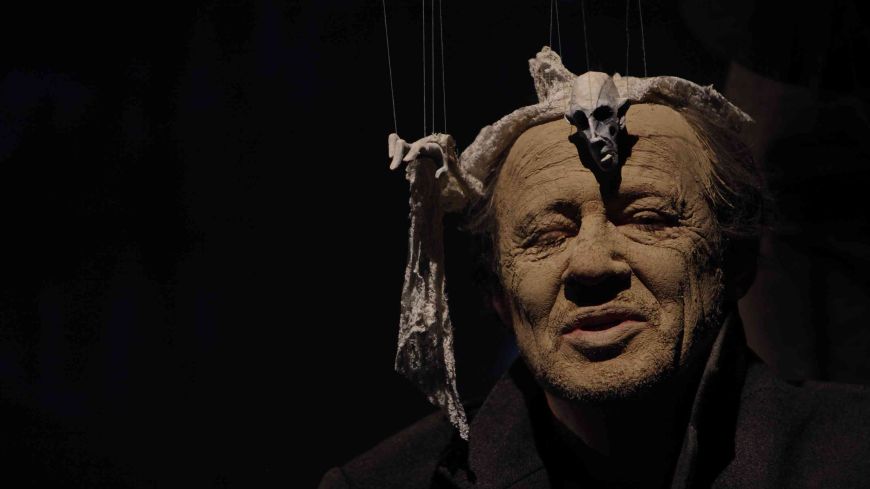
In placing experimental work at the heart of its programme, particularly performances combining hybrids of form, the Manipulate Festival is always strongly flavoured with the strange and unusual. Hôtel de Rive, by German company Figuren Theater Tübingen, was a hallmark Manipulate performance. Churning together a curious concoction of literature, visual and performing arts, a beautiful, bleak and disturbing piece of work was created, that contained subtle hints of dark humour and opened up a cavernous space in which to brood.
The piece takes it name from the hotel in Geneva where the seminal 20th Century sculptor Giacometti stayed, during a period of artistic crisis. Famous for the irregular, pitted and corroded sculptures of the human form that currently appear on the 100 Swiss Franc banknote; less well known is the extent and importance of Giacometti’s writing. Basing a script on four of Giacometti’s surrealist texts, this performance explored life and death, space and time, through the gently piercing gaze of the artist.
Through the dim lighting, it was just possible to make out the shape of a man sitting on the floor, surrounded by oblong tables made of chalky blackboards. This brought to mind accounts of Giacometti’s legendary cramped and rudimentary accommodation, which he himself described as ‘just a hole’ where every surface was coated with white dust.
The set deliberately acted to keep the performance largely static and self-contained. The ethereal, poetic script was voiced with an absorbing yet detached demeanour by French actor Patrick Michaelis, and musicians Jean-Jaques Pedretti and Robert Morgenthaler expertly used trombones and giant alphorns to augment the oppressive and other-worldly atmosphere.
The flow and movement that transported light into this darkly intense and barren space, was created through the dazzling skill of puppeteer Frank Soehnle and the sinister beauty of his puppets. They were the sculptures of Giacometti brought to life. Those fragile figures that appeared to have been reduced to their very core, danced and span with an expressive freedom and crawled dexterously into crevices; their amorphous shadows and sharp details all projected onto the backdrop that enclosed the space behind.
Giacometti was well-connected: he had been Best Man for Andre Breton, the founder of Surrealism; verbally sparred with existentialist writers Sartre and Camus and was known to be a close friend of Samuel Beckett. The influence of surrealist and existential attitudes were openly present in this production and the overall style was very reminiscent of Beckett’s Happy Days and Endgame, in particular.
But what this production managed to convey was more complex and personal than labels and categories will allow. Amidst all the angst and alienation and lack of reason, they made the originality of Giacometti’s work, and the sense of his self-consciously reflective and life-affirming creativity, recognisable and glorious.
6 Feb only

